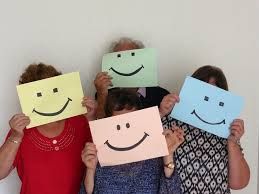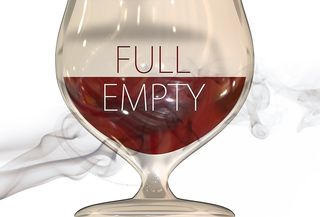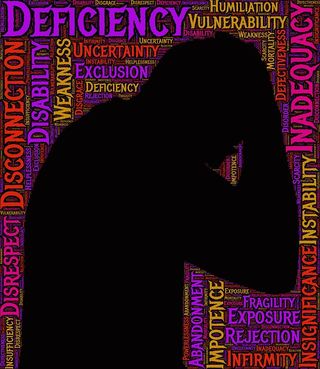Fear
Might You Suffer from Reverse Paranoia?
Oddly, “reverse paranoia” can be either a valuable asset or harmful liability.
Posted December 2, 2015

Despite reverse paranoia being such an strange concept, a variety of writers have weighed in on this curious mental state. For the phenomenon can be seen as a valuable asset, which you’re really fortunate to possess. But it can also be viewed as an affliction, with the potential to cause you much pain and sorrow.
This post will briefly, and selectively, review some of the literature—scientific and pseudo-scientific—on what’s frequently referred to as pronoia. Beyond that, it will offer a new and completely different definition of reverse paranoia, which may be equally important to consider.
The root definition of reverse paranoia is perhaps stated most poignantly in a novella by J. D. Salinger. In his Raise High the Roof Beam, Carpenters (1963), the character Seymour portrays himself in this manner: “I am a kind of paranoid in reverse. I suspect people of plotting to make me happy.”
As typically understood, paranoia itself is not only about unreasonably fearing and doubting others, and being highly suspicious of their motives toward you, it’s also about harboring feelings of hostility toward others generally. On the contrary, reverse paranoia—or pronoia—depicts not a disposition of social apprehensiveness and skepticism, but a far more welcoming orientation: one characterized by feelings of hope, trust, faith, and love. And these much more positively regarded qualities are themselves related to a strong inclination toward optimism and resilience.
Looked at in such a favorable (and perhaps exaggeratedly positive) light, being pronoiac would doubtless seem advantageous. For instance, Greg Bell, in a motivational talk (2011) on the Web (lasting all of 83 seconds!) suggests that you see everyone in your life (including such imagined enemies as the bogeyman beneath your bed!) as actually trying to help you. And he emphasizes how beneficial it is to cultivate such an attitude in terms of what, practically, it can do for you—even though he admits that such a mind-set might be equated to “optimism on steroids.”

Still, there’s considerable research touting the manifold benefits—psychologically and physically—of scrupulously developing a more optimistic, “can-do” outlook. Lacking such confidence or inner assurance, you might well miss out on opportunities that, though not without risk, could substantially increase your chances of achieving success and happiness. Moreover, it’s much harder to persevere if you haven’t convinced yourself that if only you keep striving toward your goals you’ll eventually accomplish them.
In its coverage of reverse paranoia, Wikipedia is probably the best single source for finding material on what, neologistically, is termed pronoia. It initially cites John Perry Barlow, who defined the phenomenon as “the suspicion [that] the Universe is a conspiracy on your behalf” (2008). And it goes on to connect this extremely (excessively?) optimistic belief to other writers, whose work clearly demonstrates their strongly mystical thought bias. One such author, Philip K. Dick, in his largely autobiographical work Exegesis (2011), identifies pronoia as the solution to paranoia. And this radically positive philosophy is also expounded by the astrologer Rob Brezsny in his book Pronoia Is the Antidote for Paranoia: How the Whole World Is Conspiring to Shower You with Blessings (2005).
(Optimism on steroids, indeed!)
Going beyond these, well, utopian renderings, it should be added that pop psychology—without actually employing the term pronoia—is full of such scientifically unverified, rose-colored sentiments. For example, the widely popularized “New Thought” or “spiritual” literature on the so-called “Law of Attraction” posits that we can attract to us what we most desire simply by focusing powerfully on the “reality” of our dreams and fantasies. Note, especially, the works of Napoleon Hill, Louise Hay, Esther and Jerry Hicks, and Rhonda Byrne's wildly popular film (and subsequent book) The Secret.
But as Wikipedia (in its section “Law of Attraction”) points out, more skeptical writers have observed how the so-buoyant, or “happifying,” assumptions made in such writings (and dramatizations) are as untestable as they’re untested. To quote directly from the online encyclopedia:

“Critics have asserted that the evidence provided is usually anecdotal and that . . . these reports are susceptible to confirmation bias and selection bias. Physicist Ali Alousi, for instance, criticized [its idealistic contentions] as unmeasurable and questioned the likelihood that thoughts can affect anything outside the head. [And] writing for the Committee for Skeptical Inquiry, Mary Carmichael and Ben Radford wrote that "neither the film nor the book [The Secret ] has any basis in scientific reality," and that [just as importantly] “its premise contains an ugly flipside: if you have an accident or disease, it's your fault" [i.e., you weren’t being optimistic enough].
Finally, returning specifically to the notion of pronoia, Wikipedia cites Queens College professor Fred H. Goldner, whose article in the academic journal Social Problems (1982) characterizes the anomaly as the mirror image of paranoia and, in its own way, also a “psychological affliction”—quite as delusional as the much better known psychopathology. For with pronoia you irrationally presume that others think highly of you and your actions. Additionally, you tend to see your acquaintances as close friends, and the simple exchange of pleasantries as indicating both their attachment and readiness to help you.

All this said, however, I’d like to end by introducing a totally different definition of reverse paranoia. For personally, I regard the conundrum as revolving not around your distrust of others but of yourself. In this interpretation you’re afflicted with deep self-doubts, as well as a negative viewpoint toward yourself in general. And such a discouraged self-perspective leads you to become paralyzed (or at least “stall”) in making decisions or taking action that could benefit you. Suspicious not of others’ plotting against you but of your own capability—and maybe your worthiness as well—you refrain from fully applying yourself toward potentially satisfying goals and pursuits. Needless to say, it’s exceedingly difficult to confront challenges in life when you don’t trust yourself to do so effectively.
So where does such a self-questioning—or self-castigating—viewpoint originate? I’d suggest that primarily it develops during childhood, where you first “constructed” your identity (positive or negative) largely on the basis of messages you received from your family. Granted, it’s possible that you misunderstood these self-referencing messages. Nonetheless, if you concluded that you couldn’t trust your judgment or perceptions because they were routinely attacked by your caretakers, then as an adult you’re likely to pay a stiff price for having taken too much to heart their (supposedly) harsh assessments of you.
The inevitable result of such “internalization” is that you’ll regard your perspective on people and things as unreliable, inadequate, flawed—and so shy away from acting autonomously. Additionally, trusting others’ judgment more than your own (as in, you’re okay, but I’m not okay), you’ll typically put yourself at risk for others’ exploiting or taking advantage of you. Or, unable to trust your own adult authority, and so indiscriminately accepting the advice of others, you’re liable to make decisions that end up harming you.
Contrary to the reverse paranoia described earlier, this reverse paranoia is as self-effacing or -denigrating as the other is self-enhancing (or even -aggrandizing). Ultimately, however, both mind-sets represent a dangerously simplistic—and possibly “perverted”—perception of reality. So if you identify with either characterization, you may wish to undertake a major reassessment of your ingrained assumptions or viewpoints. . . . Or see a professional able to look at your situation far more objectively—and accurately—than may now be possible for you.
NOTE 1: If you could relate to this post and think others in your circle might also, kindly forward them its link.
NOTE 2: If you’d like to check out other posts I’ve written for Psychology Today online—on a broad variety of psychological topics—click here.
© 2015 Leon F. Seltzer, Ph.D. All Rights Reserved.
---To be notified whenever I post something new, I invite readers to join me on Facebook—as well as on Twitter where, additionally, you can follow my frequently unorthodox psychological and philosophical musings.




